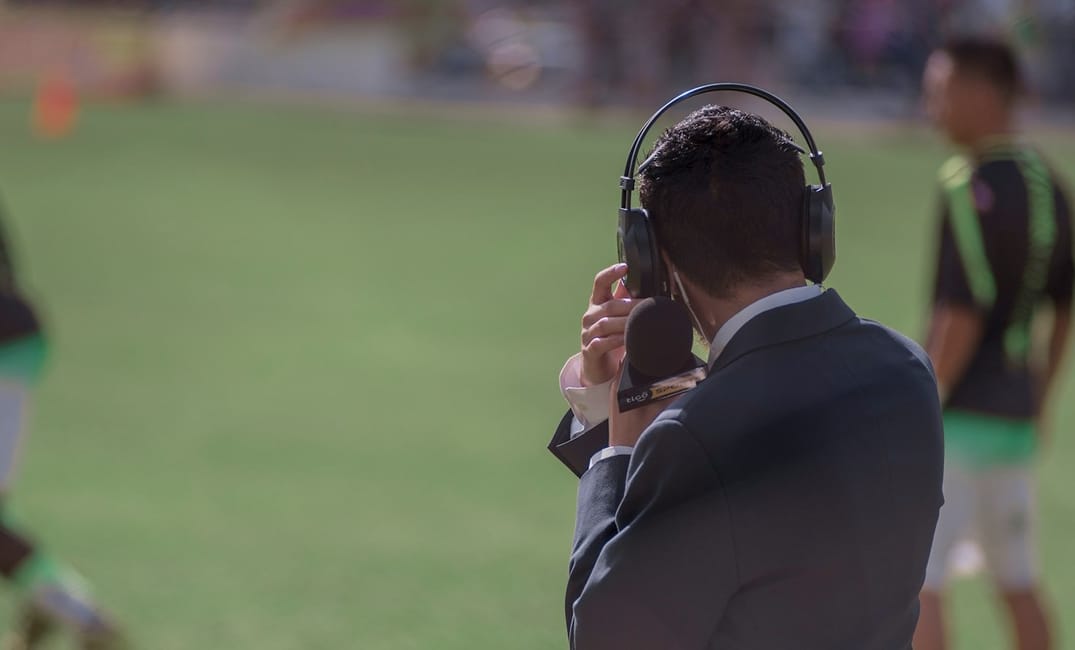✏️ Samuel Young
The murder of George Floyd was felt across the world and the Premier League was no different. The players of all 20 clubs made a joint statement supporting the #BLM movement. The Premier League stood alongside the players and supported the players’ wish to have their names replaced by “Black Lives Matter” on the back of their shirts for the first 12 matches of the restarted 2019/20 season.
A Black Lives Matter logo will also feature on shirts for the remainder of the season. In addition, the League has supported players taking a knee which has occurred before every game since the season restarted.
A RunRepeat study into racial bias in football commentary shows, however, that the ‘beautiful game’ has a long way to go to eradicate racism from its sport.
RunRepeat, in partnership with the Professional Footballers’ Association (PFA) analysed 2,073 statements from commentators in 80 football matches in 4 of Europe’s top leagues (Italian Serie A, Spanish La Liga, French Ligue 1, and English Premier League) from the 2019/20 season. The results of this analysis make grim reading.

It was found that commentators are nearly 3.5 times more likely to talk about the power of a player with a darker skin tone than his lighter skinned counterpart and 2.79 times more likely to mention the speed of a darker skinned player compared. In contrast, commentators were 3.2 times more likely to describe a lighter skinned player as intelligent and over 2.5 times more likely to describe them as having good mental / leadership attributes.
These findings show that commentators create a perception of darker skin player’s strongest assets being their athletic abilities whereas a lighter skinned player is more likely to be complimented for their mental abilities. As the report itself states, this is because there ‘’is bias in the way the media discuss players based on the colour of their skin.’’ This is also the view of the PFA’s equalities executive, Jason Lee, who stated ‘’this study shows an evident bias in how we describe the attributes of footballers based on their skin colour.”
Lee, the former Nottingham Forest player, also spoke out this week about the racial abuse he received during his playing career at the hands of David Baddiel and Frank Skinner on the Fantasy Football Show. Baddiel portrayed Lee in black face and acted in an over exaggerated unintelligent and slow-witted way.
This perception of darker skinned players as not being as intelligent as lighter skinned players is not based on any science by the commentators and is rather the oral manifestation of their racist bias. This bias can have a detrimental knock-on effect for darker skinned players’ future careers in football. This is because, ex-players who spent their career being described as unintelligent or poor decision makers, are less likely to be considered for careers off the pitch. Lighter skinned players, in comparison, have had a career’s worth of praise about their football intelligence and so it is seen as a natural progression for them to go into coaching or boardroom level jobs.
Currently, only 6 out of the 91 football league clubs have BAME managers even though around 30% of all professional footballers are BAME. Clearly, therefore, there is a problem when it comes to ex-players entering the next stage of their football careers and into coaching.
To their credit the Premier League, the Football League and the PFA have sought to address this issue in coaching. This week they announced a scheme which has the aim of helping BAME players move into full-time coaching roles. The scheme will start next season and consists of a 23-month work placement at a professional club for 6 BAME coaches per season. Doncaster Rovers manager Darren Moore, who is chair of the Premier League’s black participants’ advisory group described the scheme as “a positive step.’’

We can all agree that Moore is right but the seeds of bias within football are sown when these coaches were still players as a result of the way they are commented on. By the time these players have retired, the seeds of bias have grown into closed doors that prohibit them from entering the coaching profession. This root problem needs to be addressed as it will lead to more BAME ex-players being given coaching and board room level jobs. This will be great for football as a whole because there is a wealth of untapped knowledge that BAME ex-players possess.
One of the ways that this racial bias in commentary can be combated is through better representation of BAME people in the profession. The study found that only “5% of commentators and co-commentators within the evidence were BAME.’’ In England, people like Alex Scott and Ian Wright have become staples of Sky Sport’s and the BBC’s football analysis teams but have not been given the co-commentary opportunities that white ex-pros such as Jamie Carragher and Gary Neville have.
If BAME ex-pros, who have suffered racial bias in their careers, were the ones commentating on games then it is less likely that BAME players would be reduced to their physical characteristics and instead would be given the credit that they deserve.
Thanks for reading our article! We know young people’s opinions matter and really appreciate everyone who reads us.
Give us a follow on Instagram, Twitter and Facebook to stay up to date with what young people think.

